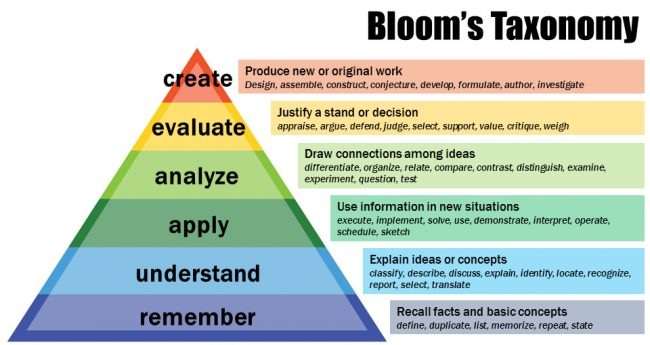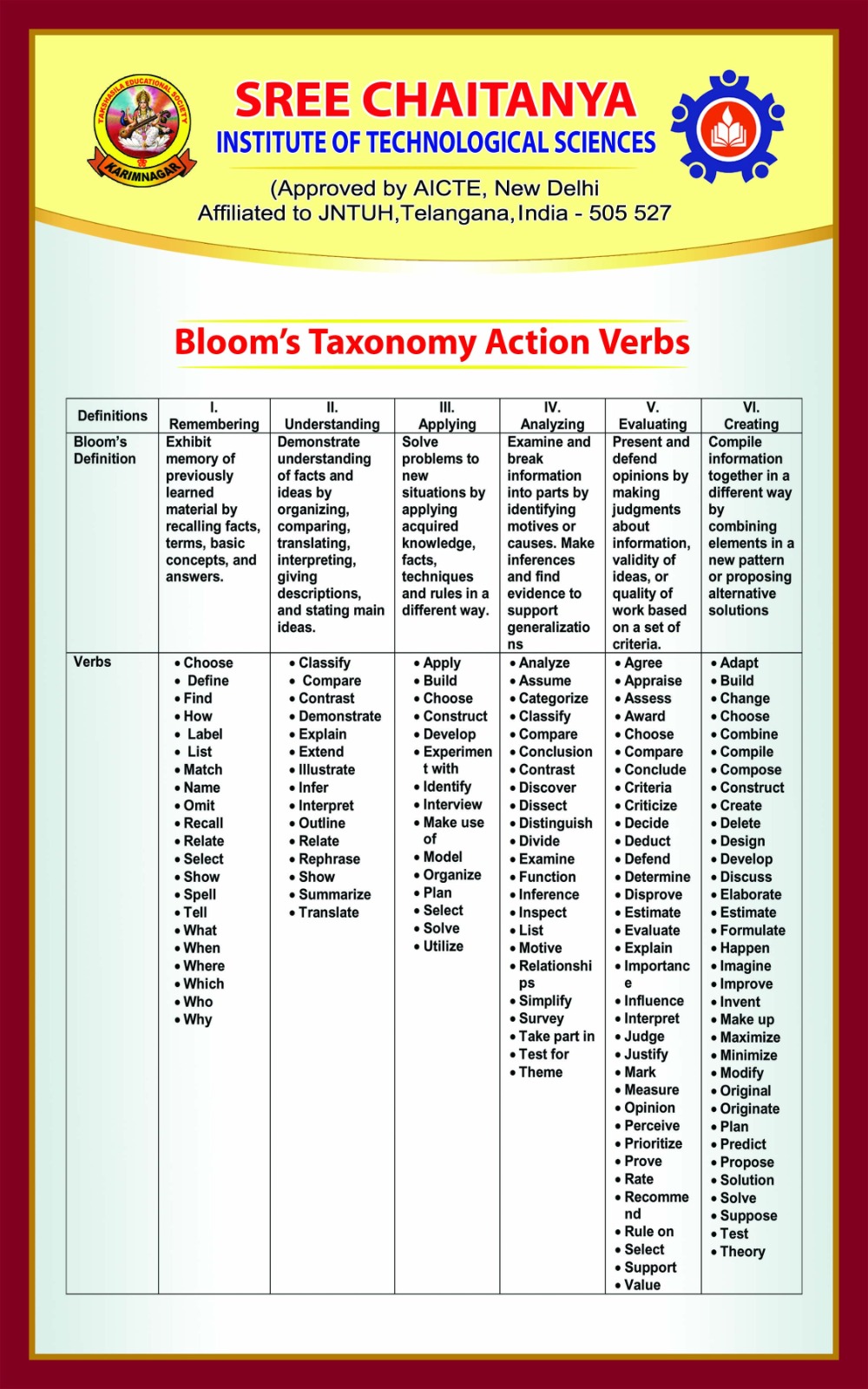The Department of AIML commenced in 2021 with an intake of 60. It has the necessary infrastructural facilities required for imparting high quality education and the department is fully structured to meet the contemporary needs of the industry. Imparting high quality education is supported by well qualified and experienced faculty, further support is extended by technically skilled and competent programmers.
Overview
The Artificial Intelligence (AI) and Machine Learning (ML) department at Sree Chaitanya Institute of Technological Sciences (SCITS) is at the forefront of pioneering advancements in intelligent systems. Established to meet the growing demand for AI-driven technologies, our department offers a comprehensive educational experience that blends theoretical knowledge with practical applications.
Cutting-Edge Technologies
Explore the latest innovations in AI & ML at SCITS:
AI Algorithms: Master algorithms that simulate human intelligence to solve complex problems.
Machine Learning Models: Dive into statistical techniques and computational algorithms for pattern recognition and predictive analytics.
Deep Learning: Study neural networks and deep learning architectures for tasks like image and speech recognition.
Data Science: Harness the power of big data through advanced analytics and visualization tools.
Research and Innovation
Engage in groundbreaking research that pushes the boundaries of AI & ML:
Applied Research: Collaborate on projects that apply AI to diverse fields such as healthcare, finance, and autonomous systems.
Industry Partnerships: Work with leading companies to apply AI solutions in real-world scenarios, driving innovation and practical insights.
Career Opportunities
Graduates from our AI & ML program pursue dynamic careers, including:
AI Engineer: Develop intelligent systems and algorithms for automation and decision-making.
Data Scientist: Analyze large datasets to extract insights and drive data-driven strategies.
Machine Learning Specialist: Design and implement ML models for predictive analytics and pattern recognition.
Future Prospects
The future of AI & ML at SCITS is characterized by:
Emerging Technologies: Prepare for advancements in areas like natural language processing, robotics, and autonomous vehicles.
Global Impact: Contribute to global AI initiatives through research collaborations and international partnerships.
Entrepreneurship: Foster entrepreneurial skills through innovation hubs and startup initiatives focused on AI-driven solutions.
Join Us
Join SCITS and embark on a transformative journey in AI & ML. Discover how our program prepares you to innovate, lead, and make a significant impact in the rapidly evolving field of artificial intelligence and machine learning.
Vision:
- To provide high-quality education in order to produce competent and promising technocrats with cutting-edge knowledge, ethical standards and creative ideas in the field of computer science & engineering to suit the industry requirements.
Mission:
- Provide quality learning experiences to ambitious students through implementing effective classroom procedures, active learning teaching methods, and to make them confident, competent and industry ready engineers.
- Empower the graduates with the fundamentals in design and implementation of computational problems through university curriculum and modern research methodologies in collaboration with industries and reputed institutes.
- Strengthening research and development activities through application development, technical events and certification programs in the core areas of computer science engineering.
- To instill professional behavior, strong ethical values, professional suitability and leadership abilities.
Program Educational Objectives (PEOs):
1.PEO – 1: To educate students in fundamental sciences and Artificial Intelligence and Machine Learning so that they can meet the issues facing the power industry globally.
2.PEO – 2: To get ready to become a flexible technical engineer who can benefit society in a variety of ways.
3.PEO – 3: To become ready as a capable professional engineer who can solve problems in the real world by working alone, in a team , or as a leader.
4.PEO – 4: To provide lifelong learners with critical thinking, problem solving and reasoning abilities.
Program Specific Objectives (PSOs):
1.PSO – 1: The ability to apply knowledge of mathematics and computer science for solving real world problems and adapting new technologies to become always industry ready.
2.PSO – 2: Apply the relevant technologies and latest software engineering tools to engage in lifelong learning and conduct investigations in computer science engineering to become part of the societal growth.
3.PSO – 3: To implant effective communication skills, ethics and leadership qualities for sustainability.


PO1: Engineering Knowledge: Apply the knowledge of mathematics, science, engineering fundamentals, and an engineering specialization to the solution of complex engineering problems.
PO2: Problem Analysis: Identify, formulate, review research literature, and analyze complex engineering problems reaching substantiated conclusions using first principles of mathematics, natural sciences, and engineering sciences.
PO3: Design/Development of Solutions: Design solutions for complex engineering problems and design system components or processes that meet the specified needs with appropriate consideration for the public health and safety, and the cultural, societal, and environmental considerations.
PO4: Conduct Investigations of Complex Problems: Use research-based knowledge and research methods including design of experiments, analysis and interpretation of data, and synthesis of the information to provide valid conclusions.
PO5: Modern Tool Usage: Create, select, and apply appropriate techniques, resources, and modern engineering and IT tools including prediction and modeling to complex engineering activities with an understanding of the limitations.
PO6: The Engineer and Society: Apply reasoning informed by the contextual knowledge to assess societal, health, safety, legal and cultural issues and the consequent responsibilities relevant to the professional engineering practice.
PO7: Environment and Sustainability: Understand the impact of the professional engineering solutions in societal and environmental contexts, and demonstrate the knowledge of, and need for sustainable development.
PO8: Ethics: Apply ethical principles and commit to professional ethics and responsibilities and norms of the engineering practice.
PO9: Individual and teamwork: Function effectively as an individual, and as a member or leader in diverse teams, and in multidisciplinary settings.
PO10: Communication: Communicate effectively on complex engineering activities with the engineering community and with society at large, such as, being able to comprehend and write effective reports and design documentation, make effective presentations, and give and receive clear instructions.
PO11: Project Management and Finance: Demonstrate knowledge and understanding of the engineering and management principles and apply the set one’s own work, as a member and leader in a team, to manage projects and in multidisciplinary environments.
PO12: Life-long learning: Recognize the need for, and have the preparation and ability to engage in independent and life-long learning in the broadest context of technological change.
Dr.Peddi Kishor
HOD CSE-AIML
peddi.kishor@gmail.com
9676445121
| Sno | Jntu Id | Name | Designation |
|---|---|---|---|
| 1 | 7948‑150623‑175333 | NALLA SRINIVAS | Assistant Professor |
| 2 | 1244‑150410‑142705 | PEDDI KISHOR | Assistant Professor & HOD |
| 3 | 2877‑150408‑104102 | KANDUKURI CHANDRA SENA CHARY | Assistant Professor |
| 4 | 4853‑150408‑130020 | NAVEEN KUMAR SHANIGARAPU | Assistant Professor |
| 5 | 9517‑150412‑121039 | CHADA SAMPATH REDDY | Assistant Professor |
| 6 | 7677‑150412‑124209 | RAVULA HARITHA | Assistant Professor |
| 7 | 3273‑150408‑121334 | RAMESH BOLLI | Assistant Professor |
| 8 | 9224‑150414‑155523 | NAGAMALLA MAHESH | Assistant Professor |
| 9 | 6849‑160306‑024710 | JANGA RAVI CHANDER | Assistant Professor |
| 10 | 2215‑0404‑160405 | SRINIVASA RAO BILLAKANTI | Assistant Professor |
| 11 | 1218‑150410‑131137 | SANTHOSH KUMAR N | Assistant Professor |
| 12 | 9678‑160215‑122340 | SHANTHI KUMAR DASARI | Assistant Professor |
| 13 | 8252‑190826‑163058 | SHAGUFTHA BASHEER | Assistant Professor |
| 14 | 7168‑160216‑104733 | BIJUGU BAGYA | Assistant Professor |
| 15 | 6655‑161229‑103611 | MARKONDA SRINIVAS | Assistant Professor |
| 16 | 1515‑160306‑171117 | BOORLA SRILAXMI | Assistant Professor |
| 17 | 3166‑190828‑110847 | GALI AKHILA | Assistant Professor |
| 18 | 4047‑181218‑132802 | CHALLURI SHIVA KRISHNA CHARY | Assistant Professor |
| 19 | 8515‑0407‑163328 | PURAM SRINIVAS | Assistant Professor |
| S.NO | Branch | Year | Sem | Lab code | Lab Name | Equipment Name |
|---|---|---|---|---|---|---|
| 1 | Artificial Intelligence and Machine Learning | 2 | 1 | DSTL | Data Structures Lab | Computer Systems with C Compiler installed |
| 2 | Artificial Intelligence and Machine Learning | 2 | 1 | PPL | Python Programming Lab | Computer Systems with Python Compiler installed |
| 3 | Artificial Intelligence and Machine Learning | 2 | 2 | DBMSL | Database Management Systems Lab | Computer systems with OS & MySQL installed |
| 4 | Artificial Intelligence and Machine Learning | 2 | 2 | JPL | Java Programming Lab | Computer Systems with My SQL and JDK installed |
| 5 | Artificial Intelligence and Machine Learning | 2 | 2 | OSL | Operating Systems Lab | Computer Systems with Linux and C installed |

